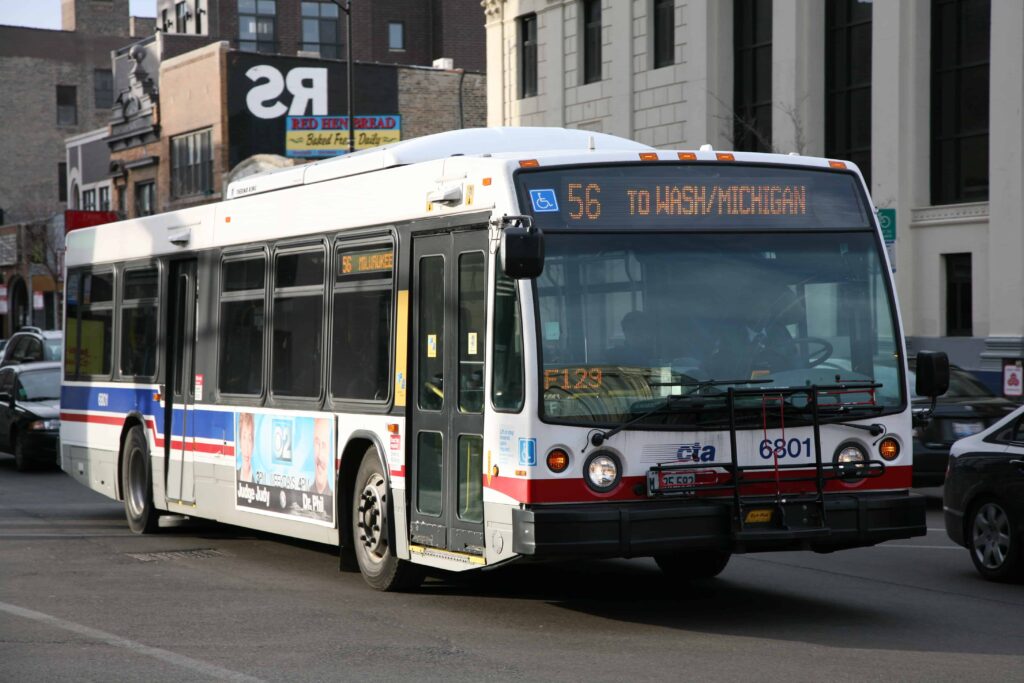 A recent investigation by the Chicago Sun-Times found that CTA drivers and operators who have been caught using cellphones while on duty have largely kept their jobs – even after at least two instances that resulted in a CTA crash. These findings seemingly contradict the CTA’s stated “zero-tolerance policy” for cellphone use, raising concerns about the potential impact of distracted driving on passenger safety.
A recent investigation by the Chicago Sun-Times found that CTA drivers and operators who have been caught using cellphones while on duty have largely kept their jobs – even after at least two instances that resulted in a CTA crash. These findings seemingly contradict the CTA’s stated “zero-tolerance policy” for cellphone use, raising concerns about the potential impact of distracted driving on passenger safety.
“Zero-Tolerance Policy”
Inspired by distracted-driving accidents in other public transportation systems, the CTA instituted what it called a “zero-tolerance policy” in 2009, one that bars bus drivers and El train operators from using cellphones while operating CTA vehicles.
Prior to this 2009 crackdown, the CTA prohibited employees in safety-sensitive positions from using mobile devices while on duty, but workers typically did not face firing or other harsh penalties until after several infractions. The zero-tolerance policy, however, promised more immediate consequences.
According to one CTA official at the time, “If an employee is using a personal cellphone while on duty, they will be discharged.”
In reality, however, very few of the dozens of known incidents that involved CTA El train operators and bus drivers caught using cellphones while piloting their vehicles led to dismissal – including at least two cases involving a CTA crash.
66 Known Incidents, More Than One CTA Crash
The Sun-Times found 57 cases since 2015 in which bus drivers have faced disciplinary action from the CTA after being caught with their cellphones on the job. (The CTA claims not to be able to locate any pre-2015 data relating to cellphone abuse by bus drivers “due to the transition to a new electronic tracking system.”) The investigation also uncovered nine cases in which El train operators were disciplined for on-duty cellphone use.
Of these 66 known cellphone infractions by CTA employees, the Sun-Times found the following:
- Nine of the 57 disciplined bus drivers were talking on a cellphone while driving.
- Eight bus drivers were texting while driving.
- Two drivers got into bus crashes while using their cellphones.
- Of the disciplined bus drivers, only thirteen resigned or were fired. The remaining 44 (over 77 percent) received lesser punishments, such as written warnings and suspensions – including the two drivers involved in CTA crashes.
- Of the disciplined El train operators, two were fired and one moved to another job. The remaining six (two-thirds) received lesser punishments, including probation and suspensions.
The relatively low rate of dismissal of drivers and operators who were caught abusing cellphones – typically either by supervisors or because of passenger complaints – seems a far cry from the CTA’s purported “zero-tolerance policy.”
CTA spokesperson Steve Mayberry told the Sun-Times that, regardless of the “zero-tolerance” claims made by an official, the CTA has always used “progressive discipline” under its labor agreements with the unions representing its workers. Nevertheless, Mayberry insisted that the 2009 policy allowed for stricter enforcement of the rules and acceleration of the disciplinary process.
Mayberry also characterized cellphone abuse by bus drivers and El train operators as “very rare,” noting that the 66 reported incidents “occurred over the course of about 24 million combined bus and rail trips.”
Distracted Driving and Public Transportation
If, as Mayberry claims, improper cellphone usage by on-duty CTA bus drivers and train operators is infrequent, it does not diminish the very real hazard of distracted driving, which remains a disturbingly common problem in America today.
In one study conducted by Allstate Insurance, nearly two-thirds of all drivers said they talked on the phone while driving, and almost half of them admitted to texting while driving. Such reckless behavior can have serious consequences. Another study found that distracted driving was involved in the majority of motor vehicle crashes in the United States, with nearly a quarter of drivers using cellphones within a minute before their crashes occurred.
The dangers of distracting driving can be compounded in the case of CTA operators, who may have hundreds of passengers entrusted to their care at any given moment. Fortunately, Illinois law recognizes their heightened responsibility. Buses and trains are legally defined as “common carriers”; the operators are subject to a higher duty of care for the safety of their passengers and expected to be more cautious than other drivers. Failure to maintain that higher duty of care could be classified as negligence, and those they have injured may be able to pursue the CTA for damages.
What If I Have Been Injured in a CTA Crash Because of Distracted Driving?
If you have been injured in a CTA crash because of a distracted bus driver or train operator and wish to maximize the value of your personal injury claim, you might consider enlisting the services of an experienced personal injury lawyer, like the CTA accident lawyers at GWC Injury Lawyers.
GWC is Illinois’ largest Personal Injury and Workers’ Compensation law firm, with over $2 billion recovered for our clients and offices throughout the state.
Please contact GWC for a zero-cost, zero-obligation consultation with one of our attorneys. Call our office at (312) 464-1234 or click here to chat with one of our representatives at any time.
<< BACK TO BLOG POSTS